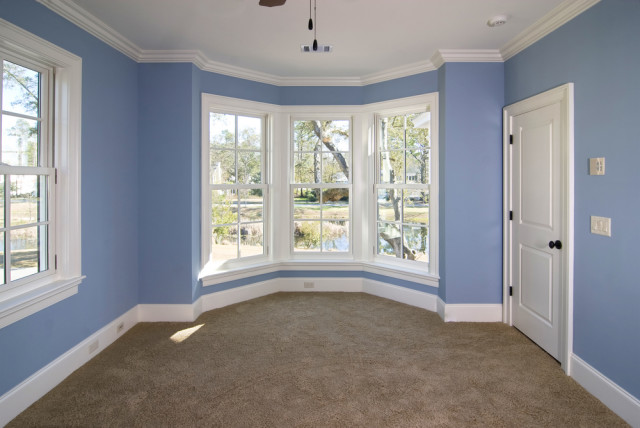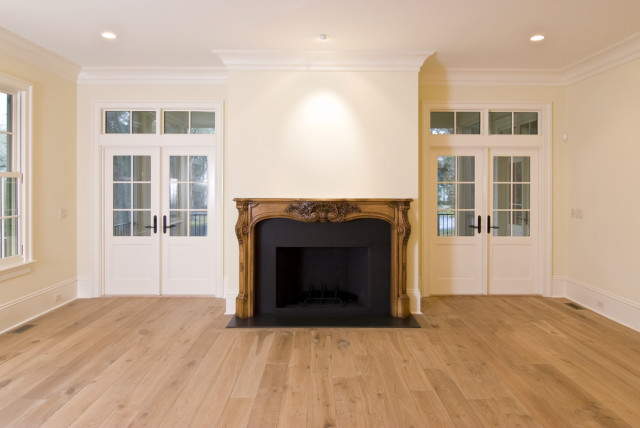We may not think of them often, but crown moldings and floor trims can actually make a big difference in a room’s design.
***
Have you ever entered a room and just thought, “wow”? I know I have. Sometimes it’s a few details—like the vintage posters or the industrial brick walls. Sometimes it’s the overall look of the space—how harmonious it is and how it integrates within the whole design of the home.
And for someone who cares about the overall design of a room, the tiniest detail is important. Everything from the finish of the paint to the angle of the cushions can make a difference. And one design weapon that designers certainly love is crown and floor moldings.
Why use moldings?
From their origins in Ancient Greece, moldings (especially the crown ones) have adorned buildings for, literally, millennia. Originally made of stone and ornately sculpted with depictions of gods and goddesses, they are still popular in homes throughout the world, albeit in more modern materials and forms.
Crown moldings can change a room from just okay to pure elegance. They attract the eye and give the impression of a higher ceiling (which is especially practical when your ceilings are lower than you wish.) They also give an instant feel of solidity and quality; seeing crown moldings makes people think “this house is of good quality, well-crafted and solid.”
The use of trims (another term for moldings) can also bring out and enhance your style—whether it’s an elegant Victorian home or an ultra-modern condo. Different styles call for different types of trim—the more elaborate and fancy, the more traditional (usually).
Browse for foam crown moldings.
Setting your proportions
There are different rules for crown proportions when it comes to ceiling height. For ceilings 10′ and higher, you can get away with 1 inch of molding width per 1 foot of ceiling. For a ceiling at 8 or 9 feet, choose a trim that’s at most 5 inches wide—narrower if the room calls for it.
Setting your proportions is very important in ensuring that the trim doesn’t take over the wall and/or doesn’t disappear from view. Something too wide, and your ceiling instantly looks much lower than it really is; something too narrow, and it won’t work as an interesting architectural detail.
For floor trim, it depends on the general proportions of the room. The fashion is currently for narrow, almost unnoticeable trim that simply provides a floor-to-ceiling transition. But you can usually get away with more elaborate trims that include a shoe, a plank and a top molding. A well-chosen floor trim adds to the stateliness of a home, just as much as the crown.
Ornamented or simple?
Crown moldings can come in very elaborate patterns, whether traditional or modern. The more elaborate, the more visible; it’s usually better to keep those fancy trims the same color as the wall/ceiling to avoid weighing down the room.
If your wall features an interesting pattern, you might want to tone down the ornamentation of the crown. Otherwise, it might distract from other elements in the room. Make sure that your crown can hold its own and isn’t dwarfed by furniture, but also that it doesn’t fight the wall patterns.
Modern crown moldings are usually pretty simple, with an angled curve to smooth the transition between wall and ceiling. They are minimal in style, but can get away with being painted a contrasting or complementary color different than that of the wall or ceiling.
Base moldings are usually rather simple, even though you can always find ornamented shoe moldings for lovers of the Victorian style. Your baseboard should match your crown in complexity and style to avoid confusing the eye.
Browse for MDF crown moldings.
Get rid of boring rooms with moldings
When you plan a room, your first thought goes to colors, patterns and textures. But crown and base trims are essential if you want a room that doesn’t look boring and unfinished. The best moldings add visual interest and harmony to a room, without attracting attention to themselves. They work best as part of the ensemble rather than as soloists.
How did you choose the moldings in your home? Did you give them any thought? Let us know in the comments!
![[object Object]](https://assets.builddirect.com/images/logo-blue.png?auto=format&fit=max&w=384)























